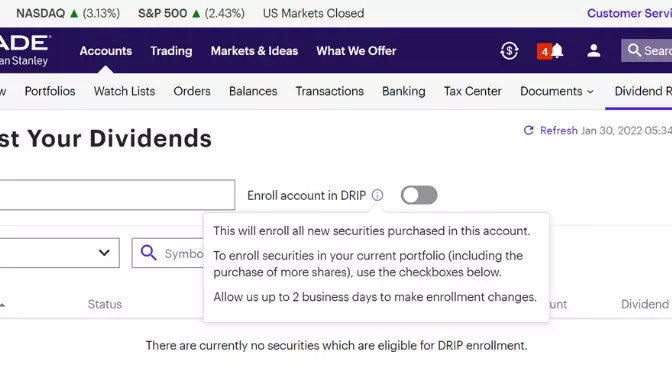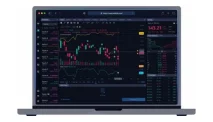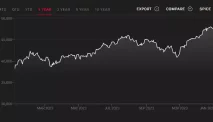Etrade fractional shares have some advantages and disadvantages. On the positive side, they allow you to:
- Invest in high-priced stocks or ETFs that pay dividends, such as Apple or Vanguard S&P 500 ETF, with a small amount of money.
- Compound your returns by reinvesting your dividends automatically and buying more shares over time.
- Save on commissions, as etrade does not charge any fees for buying or selling fractional shares within the DRIP.
On the negative side, they also have some limitations, such as:
- You cannot buy or sell fractional shares of any stock or ETF that does not pay dividends, or with any other source of funds, such as deposits or transfers.
- You cannot specify the price or the time of your fractional share purchases or sales, as they are executed by etrade at their discretion.
- You may have tax implications, as you will have to report your dividends and capital gains or losses on your fractional shares.
How do etrade fractional shares compare with other brokers?
Etrade is not the only broker that offers fractional shares. In fact, some other brokers offer more flexibility and features than etrade when it comes to fractional shares. For example, Charles Schwab, Fidelity, Interactive Brokers, Robinhood, TD Ameritrade, and Tastytrade all allow you to buy and sell fractional shares of any stock or ETF that they offer, not just the ones that pay dividends.
They also let you use any source of funds, such as deposits or transfers, to buy fractional shares, and they let you choose the price and the time of your transactions. Some of them also have minimums as low as $1 or $5 to buy fractional shares, compared to etrade’s minimum of $25.
However, these brokers also have some drawbacks, such as:
- They may not offer fractional shares for all the stocks or ETFs that they offer, or they may limit the number of fractional shares that you can buy or sell per day or per order.
- They may not offer fractional shares for some types of securities, such as options, futures, or foreign stocks.
- They may not offer fractional shares for some types of accounts, such as IRAs, 401(k)s, or custodial accounts.
- They may have different methods of calculating and rounding the fractional shares, which may affect your returns and taxes.
Therefore, before you choose a broker for fractional shares, you should compare their features, fees, and limitations, and see which one suits your needs and preferences the best.
Conclusion
Fractional shares are a great way to invest in the stock market with little money and no commissions. They allow you to buy and sell pieces of any stock or ETF that you want, regardless of the price per share. They also help you diversify your portfolio and compound your returns over time.






